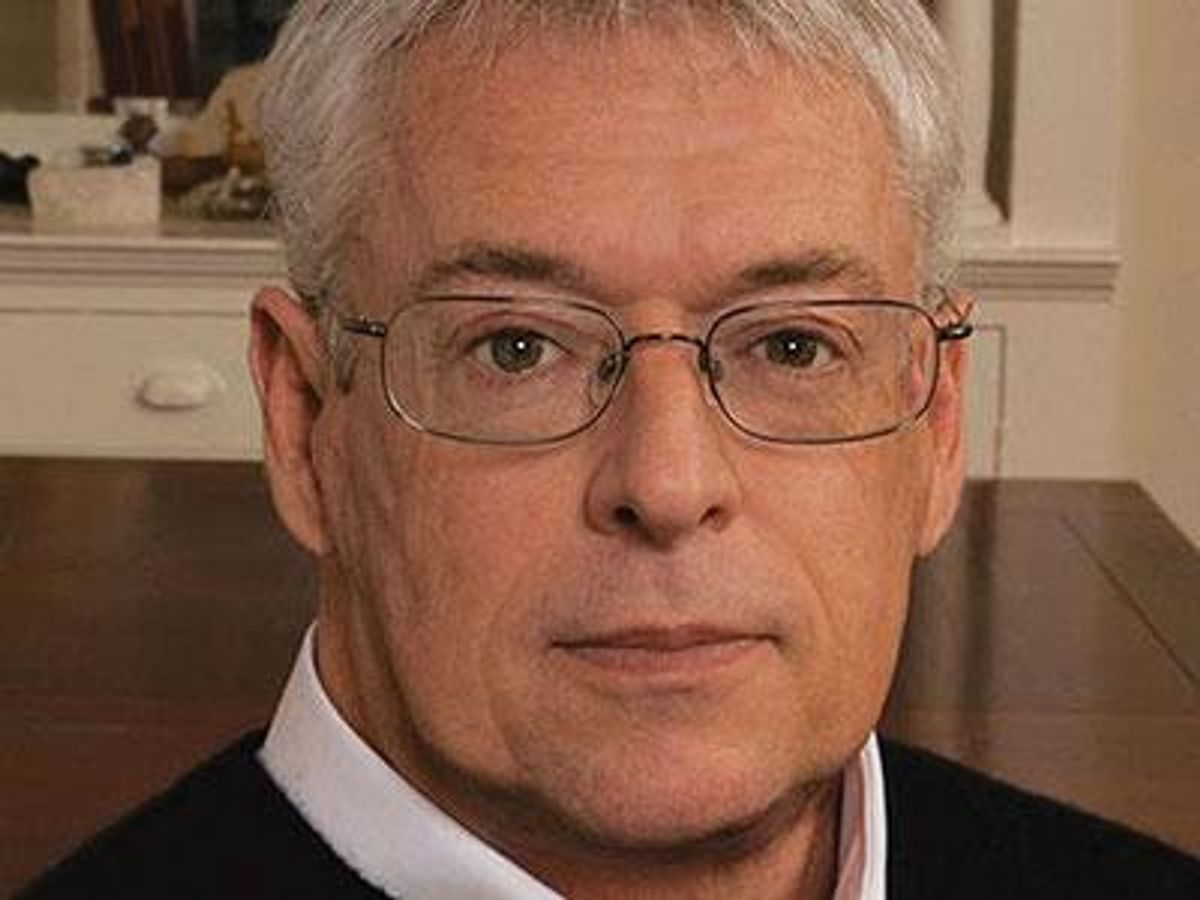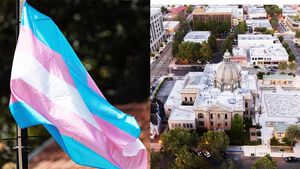It happened by accident. As they did every year on the anniversary of the assassinations of Harvey Milk and George Moscone on November 27, 1978, legions of San Franciscans marched in solidarity to City Hall. In the hours before the 1985 march, however, something out of the ordinary occurred. Cleve Jones had an idea. He grabbed Milk’s old bullhorn and instructed the crowd to take a piece of poster board and a magic marker and write down the names of all of their loved ones who had succumbed to AIDS. Instead of marching to City Hall and stopping with their candles that night per usual, they went a few blocks further — to the old federal building at the United Nations Plaza — and taped their poster art to the front of the building. When Jones took a solid step back, he noticed something: The decorated wall looked an awful lot like a quilt. The rest, as they say, is history.
“People think of AIDS as the ‘gay men’s disease,’ but there is very little information and discussion out there about the role lesbians played in fighting the epidemic,” Jones said in a 2011 interview for Windy City Times. “When I came out, women were separate from men. There was a very strong movement at the time called lesbian separatism and there was great hostility and very little interaction between men and women. The epidemic changed that forever. Women emerged first in the more traditional roles of caregiver but then very quickly took over the leadership of one organization after another as men got sick and died. Lesbian women in particular played a very powerful role in fighting back against the epidemic. It changed us in every way.”
He said later in the same interview that the early LGBT movement was very radical, since many of the participants were also antiwar activists, feminists, and civil rights fighters.
“We were a liberation movement and we used that vocabulary,” he said. “We had been fighting for social justice for other people. But then, following the Stonewall rebellion in 1969 and the spread of the gay liberation across campuses, there was this very early, very tiny, very radical movement. Just as it was gaining a little bit of traction — just the tiniest bit of visibility and political power — we got hit with AIDS. ”
And that changed everything.
“For example, most people in those days did not come out of the closet,” he recalled. “If you wanted any type of professional success, you did not come out. Those of us who were out and revealed our sexual orientation to our families, friends, and to the public were immediately cast out of even the most comfortable middle-class existence.”
Jones cofounded the San Francisco AIDS Foundation in 1983. He said the early days of the epidemic took a hard personal toll on him and those around him. “There was a time when we cried every day for 10 years,” he said. “I myself lived with the knowledge that I had the virus for a full 10 years before treatment was available. So for a full decade I wondered how many days I had left. It affected everything about our movement and our community.”
As treatment options became available and more and more people were living with the virus, a new battle began to wage: the right for same-sex couples to marry.
“I think this focus on marriage equality has its roots in the pandemic,” Jones said. “There were all of these couples who fought so hard and lost their fight, but after 20 years of grief, heartbreak, loss, and solidarity just said, ‘What do you mean this isn’t a marriage? Fuck you. This is a marriage and if you think otherwise, you are wrong and I am going to fight you. I want the benefits and I want the acknowledgement. This is a marriage. This is a family. This is a community.’”
While the days are numbered for legalized discrimination in the United States, a nearby country — Russia — has moved in quite the opposite direction since Russian President Vladimir Putin signed the “gay propaganda” bill into law making it illegal to “promote homosexuality.”
Shortly after, Jones rushed into activist mode on social media.
“Russia is descending into fascism,” Jones wrote on Facebook. “Gay people, immigrants and Jews are being subjected to increasingly violent attacks. Freedoms of speech and assembly are restricted. The parallels with Germany in the 1930s are obvious and chilling.”
Click here to find out who the other 20 Amazing, HIV+ Gay Men are this year.












































































